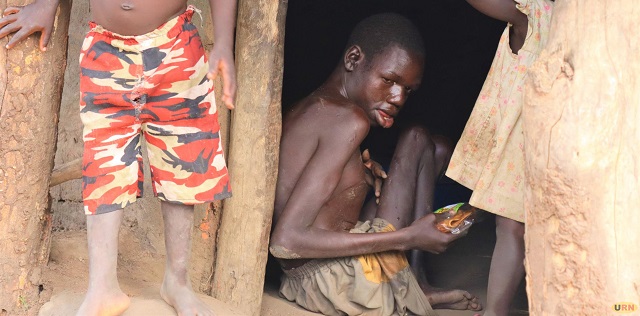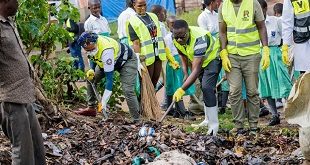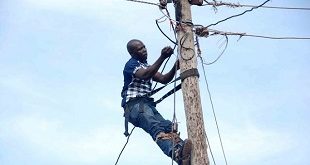
Otuke, Uganda | THE INDEPENDENT | Five percent of nodding syndrome victims in Acholi and parts of Lango sub-region have developed severe mental problems, the health minister Dr. Ruth Jane Aceng has revealed. Aceng said the children require urgent rehabilitation noting that they have become a huge burden to their parents who cannot take care of them and at the same time carry out their daily duties.
She notes that some of the children have also grown up and become too heavy for their parents to carry, a thing she says demands the establishment of a rehabilitation centre. Dr. Aceng downplayed reports that new cases of the disease were being registered, adding that the few victims whose conditions have improved are being maintained on anticonvulsants.
Aceng told President Yoweri Museveni on Saturday at Barlege State Lodge in Otuke district that there are more than 3,000 children suffering from nodding syndrome in Northern Uganda. She also disclosed that medics have confirmed that the condition is caused by the tsetse flies.
Dr. Aceng noted that the Ministry of Health has embarked on dosing and aerial spraying of the Aswa River to destroy the tsetse flies, which are said to have caused the nodding syndrome. She however says that for the last two months, they have halted the exercise due to the shortage of chemicals and funding.
Minister Aceng was responding to a request presented by the Acholi Parliamentary Group chairperson, Anthony Akol to the government to establish a nodding syndrome care center. Akol said that the nodding syndrome is burdening the districts of Pader, Omoro, Amuru, Kitgum, and Gulu and required urgent action from the president.
Responding to the concerns, President Museveni promised to establish rehabilitation centers in the nodding syndrome-affected areas under the Ministry of Health.
He said that the nodding syndrome burden would be manageable since its cause has been established, noting that the discovery also dismisses the myth that the condition was linked to relief food aid that was distributed during the insurgency as claimed by a section of leaders in Acholi.
In Pader district, which is heavily burdened by nodding syndrome, parents say that they have resorted to tying the victims with ropes on trees or locking them inside houses so that they can attend to their domestic chores and economic activities.
According to the Centre for Disease Control (CDC), nodding syndrome is an unexplained neurologic condition characterized by episodes of repetitive dropping forward of the head, often accompanied by other seizure-like activity, such as convulsions or staring spells.
The condition predominantly affects children aged 5-15 years and has been reported in South Sudan from the states of Western and Central Equatoria and in Northern Uganda and southern Tanzania.
*****
URN
 The Independent Uganda: You get the Truth we Pay the Price
The Independent Uganda: You get the Truth we Pay the Price



